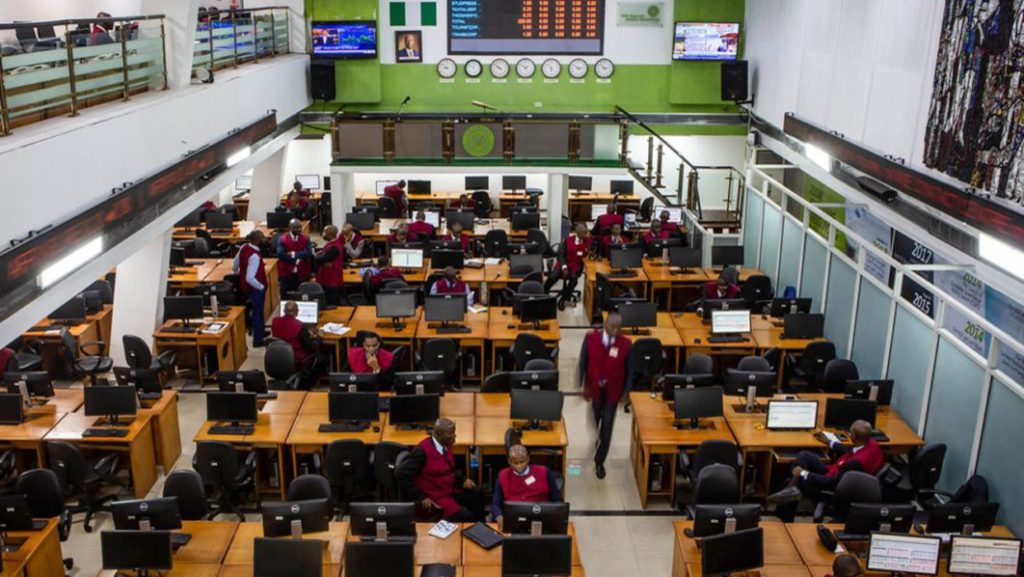The Nigerian stock market experienced a positive trading session, marked by a modest yet significant uptick in the All-Share Index (ASI). The ASI, a crucial indicator of overall market performance, rose by 194.69 points, representing a 0.19 percent increase, to close at 104,744.43. This positive movement builds on a week-on-week gain of 1.9 percent and contributes to a year-to-date gain of 1.77 percent, suggesting a generally optimistic trajectory for the Nigerian stock market. This upward trend was mirrored in other key indices, including the Top 30 Index, Consumer Goods Index, and Industrial Index, signaling broad-based positive sentiment across various sectors of the economy. The market capitalization, a measure of the total value of all listed companies, reached an impressive N64.9 trillion by the end of the trading session, further solidifying the positive market sentiment.
A deeper dive into the trading activity reveals a dynamic interplay of volume, value, and the number of transactions. A total of 497,363,256 shares were traded across 13,716 deals, indicating a substantial 19 percent surge in trading volume compared to the previous day. This increased activity suggests heightened investor interest and participation in the market. However, this increased volume was contrasted by a 12 percent decline in turnover, the total monetary value of the shares traded, and a 16 percent drop in the number of deals executed. This divergence between volume and turnover suggests that while more shares were changing hands, the overall value of these transactions decreased, possibly indicating a shift towards lower-priced stocks or a more cautious approach by investors.
The market’s breadth, a measure of the overall direction of price movements, showed a positive bias with 39 stocks advancing in price while 25 declined. This positive breadth further reinforces the overall positive sentiment prevailing in the market, indicating that more companies experienced price gains than losses. This positive momentum is crucial for maintaining investor confidence and attracting further investment into the market. The interplay between these various metrics paints a picture of a market experiencing increased activity but with a nuanced shift in investor behavior, potentially reflecting a blend of optimism and cautiousness.
Honeywell Flour Mills emerged as a top performer, leading the gainers’ chart with a 10 percent surge in its share price, closing at N9.35. This substantial gain highlights positive investor sentiment towards the company, possibly driven by positive news or improved performance expectations. Chellarams mirrored this success, also achieving a 10 percent increase, while Northern Nigeria Flour Mills followed closely with a 9.98 percent appreciation. Skyway Aviation Handling Company continued this positive trend, climbing 9.89 percent, further contributing to the positive market momentum. Other notable gainers included Redstar Express and Enamelware, further broadening the spectrum of companies experiencing positive price movements.
Conversely, Guinea Insurance experienced the largest decline, with its share price plummeting by 10 percent to close at N0.72. This significant drop may reflect investor concerns about the company’s performance or outlook. RT Briscoe followed suit with a 9.7 percent decline, while Veritas Kapital Assurance and May & Baker also experienced notable losses, dropping by 9.3 percent and 8.95 percent, respectively. These declines, while concerning for the specific companies, did not overshadow the overall positive market sentiment, highlighting the resilience of the broader market.
Trading volume was dominated by FBN Holdings, with over 83 million shares changing hands, indicating significant investor interest in the financial institution. Veritas Kapital Assurance, despite its price decline, witnessed substantial trading activity with 40 million shares traded, suggesting ongoing investor engagement with the stock. Universal Insurance Company and Fidelity Bank also recorded high trading volumes, with 26.8 million and 24.8 million shares traded, respectively. These high trading volumes, even for companies experiencing price declines, underscore the dynamic nature of the market and the varying investment strategies employed by market participants. Despite the overall positive market performance, some indices, including the Insurance Index and NGX Industrial Index, exhibited weaker performances, indicating sector-specific challenges or investor concerns. This nuanced performance highlights the importance of analyzing individual sectors and companies rather than relying solely on broad market indices.
The recent market performance builds on a previous trading session on Tuesday, where the Nigerian Exchange experienced a significant market reversal, resulting in a N364 billion gain for equity investors. This surge was fueled by a 0.57 percent increase in the All-Share Index, closing at 104,549.74 points. This positive momentum, coupled with the gains observed in the subsequent trading session, suggests a potential trend of positive market performance, although sustained performance will depend on various factors, including macroeconomic conditions, company performance, and investor sentiment. The Nigerian stock market appears to be navigating a complex landscape of opportunities and challenges, offering potential returns for investors while also demanding careful analysis and strategic decision-making.














